Sales Strategies and Tactics
In today’s highly competitive marketplace, effective sales strategies are crucial for driving business growth. Dynamo Selling specialises in equipping teams with innovative tactics and skills that not only boost sales figures but also foster long-term client relationships. This article explores several advanced sales strategies and tactics that can revolutionise how you approach sales, ensuring your efforts align perfectly with the contemporary demands of the market.
Key Takeaways:
- Adopt a Holistic Approach: Blend traditional and modern tactics for a comprehensive strategy.
- Focus on Solutions: Transition from a product-centric to a solution-oriented selling strategy.
- Data Is Key: Utilise analytics to tailor your approach to the needs of your customers.
Delving Deeper into Effective Sales Strategies
The world of sales is rapidly evolving, and staying ahead requires not just awareness but a proactive adaptation to emerging trends. Here, we delve deeper into each strategy, offering actionable insights and examples that can be immediately applied to your sales practices with the help of Dynamo Selling.
Social Selling: Engage More Effectively
In the realm of social selling, the key is engagement. Sales professionals need to be seen as resource centres on their chosen platforms. For instance, sharing regular updates about industry trends, informative articles, and insights that address common customer pain points can establish credibility and attract leads naturally.
Example: A B2B sales executive could use LinkedIn to post regular articles about developments in their industry, comment on posts relevant to their field, and participate in discussions. This not only increases visibility but also positions them as a thought leader.
Consultative Selling: Foster Trust Through Expertise
Consultative selling transforms salespeople into trusted advisors. It requires an in-depth understanding of the client’s business, challenges, and industry to offer solutions that genuinely add value beyond the basic function of the products or services being sold.
Example: A software salesperson might spend time understanding a prospect’s business processes and then present a customised demo that highlights how their software can streamline operations and reduce costs, rather than just listing features.
Enhancing Customer Experience: From Initial Contact to Post-Sale
The customer journey should be seamless and enjoyable at every stage. This means optimising every touchpoint, from the initial website visit to post-sale support. Personalising communication, anticipating customer needs, and providing quick resolutions to issues are all crucial.
Example: An online retailer could use CRM tools to provide personalised recommendations based on previous purchases and browsing history. Additionally, ensuring a hassle-free return policy can significantly enhance customer satisfaction and loyalty.
Data-Driven Decisions: Navigate with Precision
Utilising data effectively can transform how sales strategies are formulated. Analysing data from sales calls, customer feedback, and online behaviour patterns can help pinpoint what strategies are working and where adjustments are needed.
Example: By analysing the patterns in which features are most used in a SaaS product, a company can tailor their sales pitches to highlight the most popular features and develop targeted marketing campaigns.
Continuous Training: Cultivate a Learning Environment
In an environment as dynamic as sales, ongoing education and training are non-negotiable. This could range from formal training sessions and workshops to providing access to the latest sales tools and technologies.
Example: Regular training sessions on the latest sales automation software can help sales teams automate routine tasks, freeing up more time to focus on building relationships and closing deals.
Innovative Sales Tactics to Consider
Beyond strategies, specific tactics can be implemented to refine the sales process further. These include:
- Personalisation at Scale: Use tools and technologies to customise your sales messages and offerings at scale. Advanced CRM systems can help tailor communications based on user profiles, improving the relevance and effectiveness of your messages.
- Value-Based Selling: Focus on the value your product or service brings to the customer, not just the price. Articulate how your offering can solve problems or improve the customer’s situation in a way that justifies the cost.
- Strategic Partnerships: Form alliances with other companies that offer complementary products or services. This can open up new customer bases and provide integrated solutions that offer greater value to clients.
- Psychological Techniques: Understanding psychological triggers such as the principle of scarcity (limited-time offers), authority (using expert endorsements), and liking (building rapport) can significantly enhance the effectiveness of your sales
Embracing Technology in Sales
Incorporating technology into your sales strategy is not optional but a necessity in today’s digital age. From automated email campaigns to AI-driven analytics, technology can provide a significant competitive advantage.
- CRM Systems: Implement a robust CRM system to track every customer interaction, which helps in personalising future communications and predicting sales trends.
- AI and Machine Learning: These technologies can predict customer behaviour, automate repetitive tasks, and even guide salespeople on the next best action to take with a specific client.
- Mobile Sales Tools: With the increasing mobility of sales teams, having access to mobile sales tools allows for real-time updates, access to customer data on-the-go, and the ability to close deals anywhere.
Refining Your Sales Approach: Tailored Strategies for Success
Building on the fundamental strategies and embracing advanced tactics, it’s essential to continually refine your approach based on feedback and outcomes. This section focuses on how you can iterate on your sales strategies to enhance effectiveness and efficiency continually.
Feedback Loops: Listen and Adapt
Constructive feedback is a goldmine for sales improvement. Implementing regular feedback loops where sales teams can share insights and challenges can help refine strategies and tactics continuously.
Example: After every sales cycle, conduct a review session where team members can discuss what worked and what didn’t. This could lead to new approaches or the refinement of existing tactics based on real-world experiences.
Segmentation: Target More Precisely
Market segmentation allows for more targeted sales strategies. By dividing your market into distinct segments based on demographics, behaviours, or needs, you can tailor your approach to better meet the expectations of each group.
Example: A company selling fitness equipment might segment their market into professional gyms, personal trainers, and home fitness enthusiasts, with tailored messaging and products for each segment.
A/B Testing: Optimise Your Tactics
A/B testing isn’t just for marketers. Sales teams can use this method to test different approaches and determine which is more effective, whether it’s different sales scripts, email templates, or call-to-action placements.
Example: Test two different email campaigns to see which one has a higher open and response rate. Use the more successful template as the base for your future campaigns.
Upselling and Cross-Selling: Maximise Value
Train your team on the techniques of upselling and cross-selling, which can significantly increase the average transaction size and customer lifetime value.
Example: If a customer is purchasing a software subscription, the sales representative can suggest an upgrade to a premium version or an additional module that enhances functionality.
Conclusion
Revamping your sales strategies with Dynamo Selling can lead to significant improvements in performance and customer satisfaction. By integrating these tactics into your sales approach, you are not only meeting the demands of modern consumers but also positioning your business as a leader in the sales domain. For a deeper dive into transforming your sales strategies, get in touch with Dynamo Selling today.
FAQs
What is social selling and how can it boost sales?
Social selling involves using social media platforms to build relationships and interact directly with potential and current customers. It allows sales professionals to become trusted advisors by answering questions, sharing insights, and responding to comments.
How does consultative selling differ from traditional sales methods?
Unlike traditional sales techniques that focus primarily on pushing products, consultative selling revolves around understanding the customer’s specific needs and offering tailored solutions.
What role does customer experience play in modern sales strategies?
Customer experience is pivotal in building loyalty and encouraging repeat business. A positive experience can lead to more referrals and higher customer retention rates.
Can data analytics really influence sales strategies?
Yes, data analytics provides valuable insights into customer preferences and behaviours, enabling businesses to refine their sales tactics and improve targeting.
Why is ongoing training important for sales teams?
Continual training ensures that sales teams are proficient with the latest tools and techniques, keeping them adaptable and innovative in a dynamic market.
How can I implement these strategies within my organisation?
Partner with Dynamo Selling to integrate these strategies seamlessly into your operations. Our expert trainers and resources are geared towards setting you up for success.



